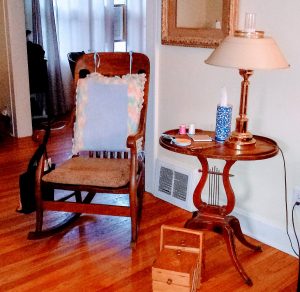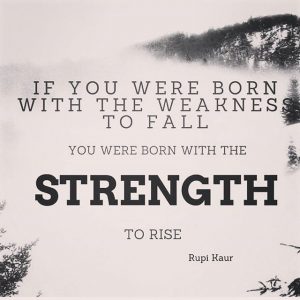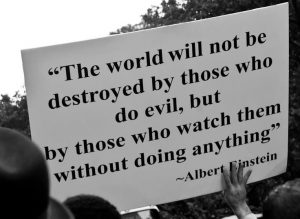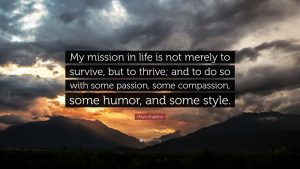The land of hearing impairment looms lonely and long.
I started losing my hearing in my mid-teens. My mother sent me to visit her parents in the hopes that Grandpa would determine whether I just did not pay attention or couldn’t hear. He deployed equipment from his work as a hearing aid salesman. I stood in the doorway of the kitchen and listened to their conversation, learning at fifteen for the first time that my hearing had begun to fail.
Since then, I’ve lost most of my voice range hearing in my left ear and about a third of that range in the right. I have lots of high range hearing left and a small amount of low range. I’ve learned to read lips (badly, self-taught). I get regular hearing tests at which I’m counseled to get hearing aids, but fancy kinds, five grand a piece, because of various nuances of my loss and the spasticity in my hands which dictate a certain functionality without which I couldn’t deploy the equipment or keep it charged.
I don’t have ten grand to blow on hearing so I keep slugging, straining to discern the spoken word, turning the radio louder and louder. I’m waiting for Medicaid, assuming the Republicans leave it for me, which, frankly, I’m beginning to doubt. I could buy the cheaper kinds, but a drawer full of impossible-to-use implements of other types suggest that equipment which I can’t manipulate will not help me. I muddle through.
Meanwhile, the sound of my own voice has faded. I have difficulty judging my tone, register, and enunciation. Worse, if I’m not looking right at someone, I don’t know they have spoken. I interrupt. I miss important disclosures. In the courtroom, I have to situate my body so as to see, without which I would never have a chance of hearing. Over and over, I utter these words: Say again, please. I choose this configuration for two reasons: One, I really want to hear exactly what the person said. Two, I dated a military man years ago who taught me never, ever, ever to utter the word repeat.
Most people interpret my request as being one for explanation. I don’t want that. If I have seen your mouth and caught any syllables, I have a fair idea what you’ve said. Your three-sentence explanation does not look remotely like the original statement or question. Then the tension rises and I wonder if you think I’m an idiot. I don’t need you to molly-coddle me by offering long paraphrases. I’ll understand. I just did not hear.
Say again, please.
I’m not deaf. I can still hear fairly well in quiet, with no ambient noise to override the human voice. I can hear women better than men. If I have a volume control, I turn it to a level that will hurt someone else if they get into the car or walk into my house where the radio plays. I can identify some words and phrases by sight. My brain supplies a bit of assistance, often incorrect, but usually sufficiently close to allow me to respond.
I feel for those who have lost all of their hearing, for those who never had it. As this precious gift slips through my fingers, my craving for music rises. I stood in a bar last weekend with my right ear angled towards the stage. I pressed one finger against the left ear to eliminate the false readings which my brain sends as tinnitus. I closed my eyes to increase my focus.
There, just there. I can hear it now: the strains of a viola da gamba, haunting, lifting me above the darkened room. So wondrous..
My companion speaks, perhaps wondering if I’ve heard what he hears. I don’t know. I will never know. But this time: Maybe. Maybe. I smile and nod. We turn our eyes back toward the performers and let the music carry us away.
It’s the thirtieth day of the forty-sixth month of My Year Without Complaining. Life continues.
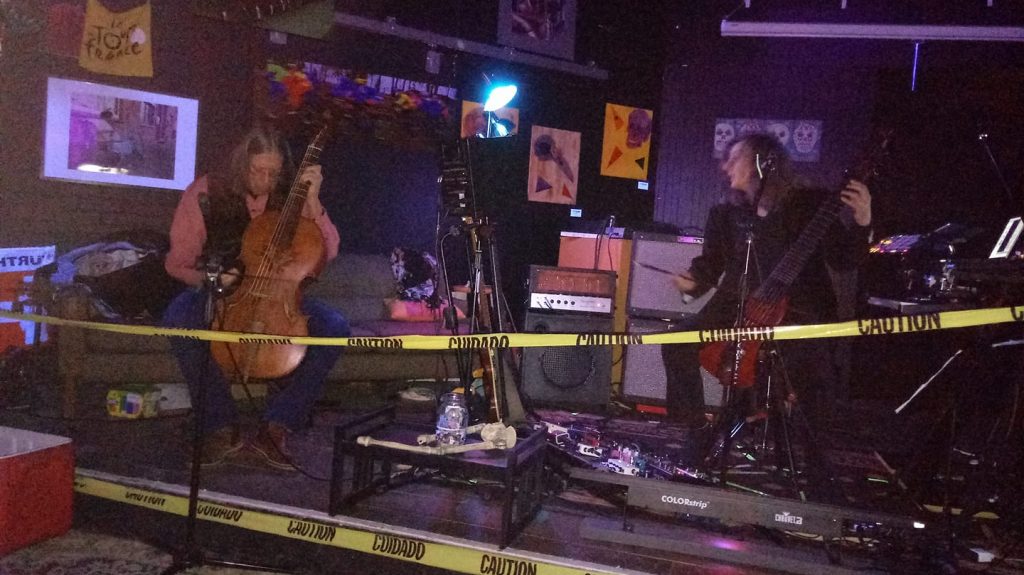
Gerald Trimble (left) and G. Victor Penniman. Both men play the viola da gamba. Seen here at The Clubhouse in the Crossroads last Saturday. Pardon the terrible cell phone picture.

